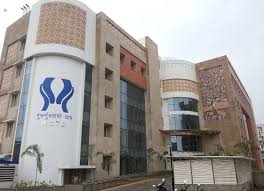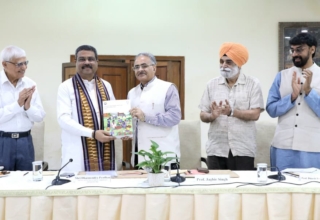

Finally, some welcome action on much neglected teacher training agenda in the country appears to be in sight as the NCTE (National Council for Teacher Education) as the national regulator for teacher education and training in India moves to a new address and seeks to address some of the vexed issues that have been the source of mistrust between it and the private sector providers of teacher education who make up about 98% of the all 18500+ teacher education colleges in the country.
Three sub-committees have been formed recently to specifically look into the long pending demands of these providers. One subcommittee has been constituted for curriculum review, second for fee uniformity nationally and the third for looking into current system of student internships. As per sources, though there is no timeframe for these committees to submit their reprots, yet because of the ministry’s action plan 2022, the work may be taken to its logical end by end of this year.
The degree programs in teacher education, B Ed and M Ed, are being taught in accordance to a curriculum devised in 1996 and since then it hasn’t been updated even once. The sub-committee which among other experts also includes some serving private school principals, will review the current curriculum and make recommendations for relevant changes and updatations.
The issue of fee uniformity for teacher education courses is one of the fundamental issues responsible for skewed growth of teacher training colleges in states as also for its poor quality. The fee ranges from as less as Rs 12,000 a year in some states to Rs 80,000 in others. As such aspirant students from various states move from one to another for cheaper options. According to Ashok Vyas, president of All India Association of Private Colleges (AIAPAC), the genesis of this problem lies in the NCTE resolution where states have been empowered to fix the fee. “As the states have to reimburse 60% through scholarships, they keep it low. We have independently got calculated the average cost of imparting training to a student, which comes to Rs 1, 92,000 per year per student. Now when the disparity is to such an extent and again from state to state, how will, TET colleges adhere to NCTE norms and become quality institutions? For the past six months we have had a dialogue with the NCTE on this and with constitution of sub-committee on the matter, our hopes have raised for a change in this rule,” he adds.
The issue of 96-day mandatory internship as part of bachelors degree program is again something that has been a source of constant friction between providers and NCTE. As of now, student has the freedom to choose the place of internship and the TET college has no role either in allotment or supervision. A lot of students do it in their leisure time near their homes and often take the whole academic session to get the completion certificate. This spillover of students for the completion of the remaining class work and curriculum into next academic year further burdens these colleges with unpaid cost. “B Ed students being supervised by untrained, non B Ed or diploma teachers is a common practice whereas our trained faculties don’t get to monitor their students is something which must change,” says Vyas adding that a sub-committee for this is indeed again a welcome move.
These newer developments come on close heels of the roll out of a new 4-year integrated B Ed course from this academic session. This new course is a dual degree BA/BSc/B Com program where the students will also study about teaching in addition to regular subjects. For these students there is no need of undergoing the two-year B Ed course after their graduation. Several universities have started this offer from this year.
According Dr. Satbir Bedi, Chairperson, NCTE, there is also a plan to establish a B ED college in each district. “We are hoping to have 700 such colleges in the country by 2022 which will add 70,000 trained teachers per annum to augment our pool.” While speaking at the inauguration ceremony of a new NCTE office building in Dwarka sector 10 of Delhi built at a cost of Rs 38 Cr, Bedi also informed that NCTE is moving to add internationalization to teacher education by adding overseas affiliated colleges and exchange programs on lines of CBSE.
As part of new office, NCTE will now house offices of all four regional committees and also issue e-certification for those graduates who have to obtain validation certificates as part of recruitment rules.
With NCTE entering into its silver jubilee year this year, the reforms initiative and a new office, will certainly put it into spotlight of expectations. Only hope is unlike its squandered past mostly spent in bureaucratic tussle and court fights, which in any case were never able to improve standards and quality of teacher students in India, this time, it sees the big picture and addresses the challenges squarely in spirit of a new India and ending teacher crisis. …Autar Nehru








